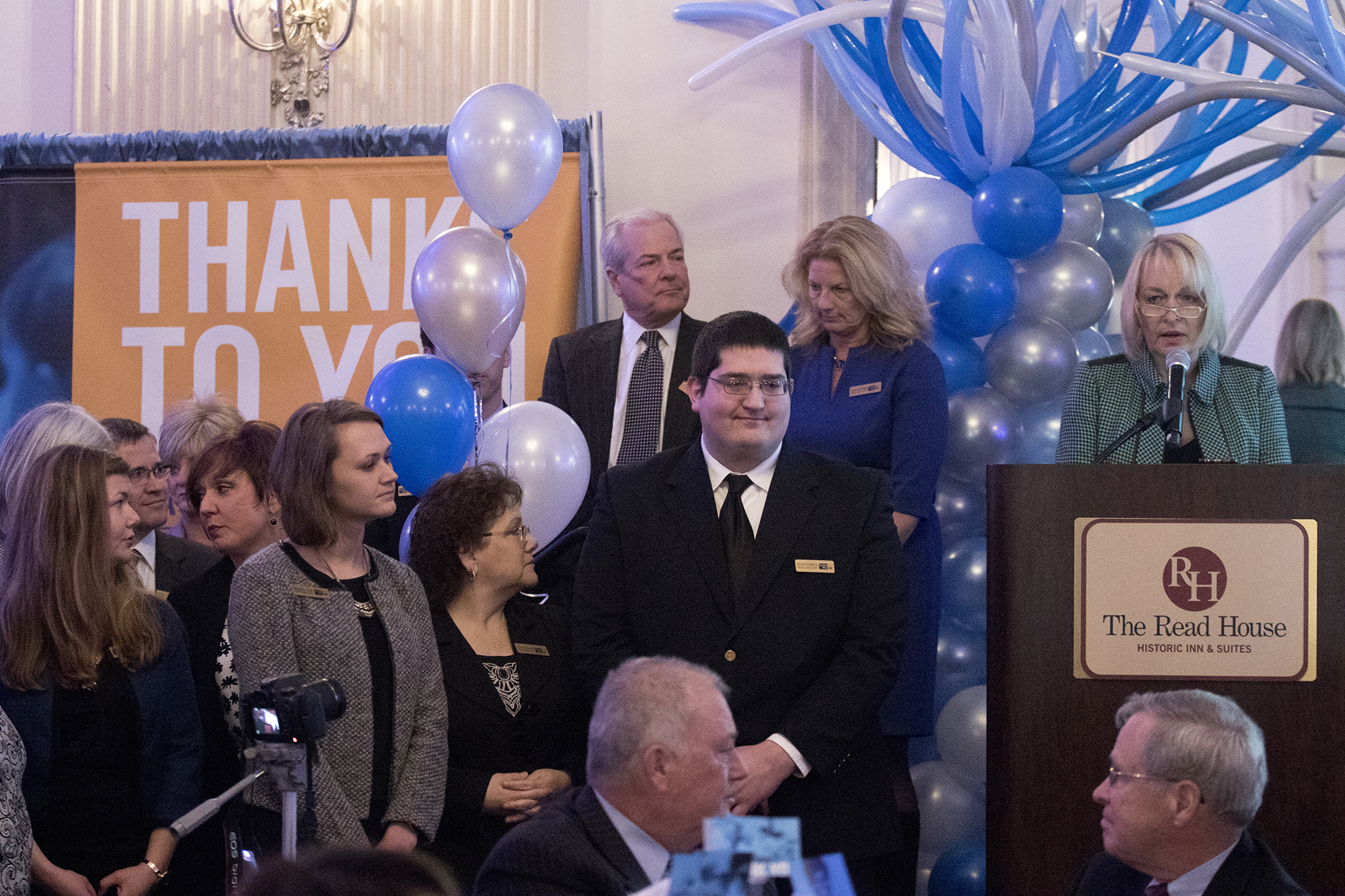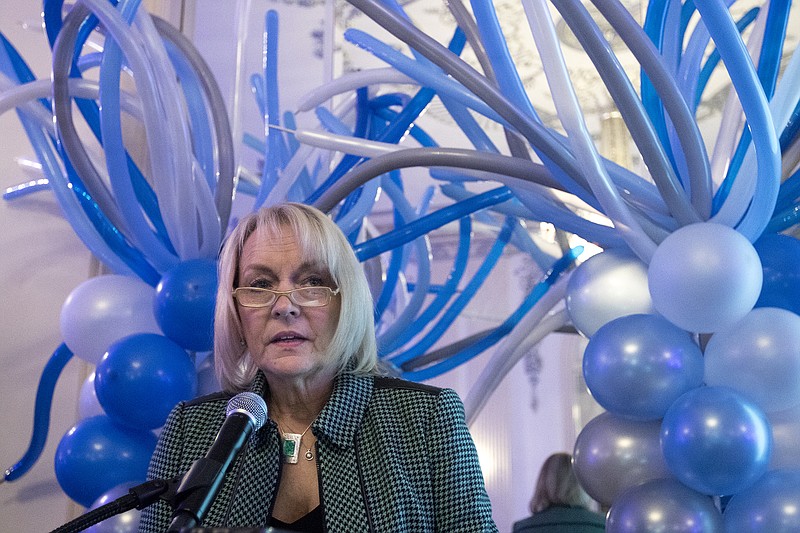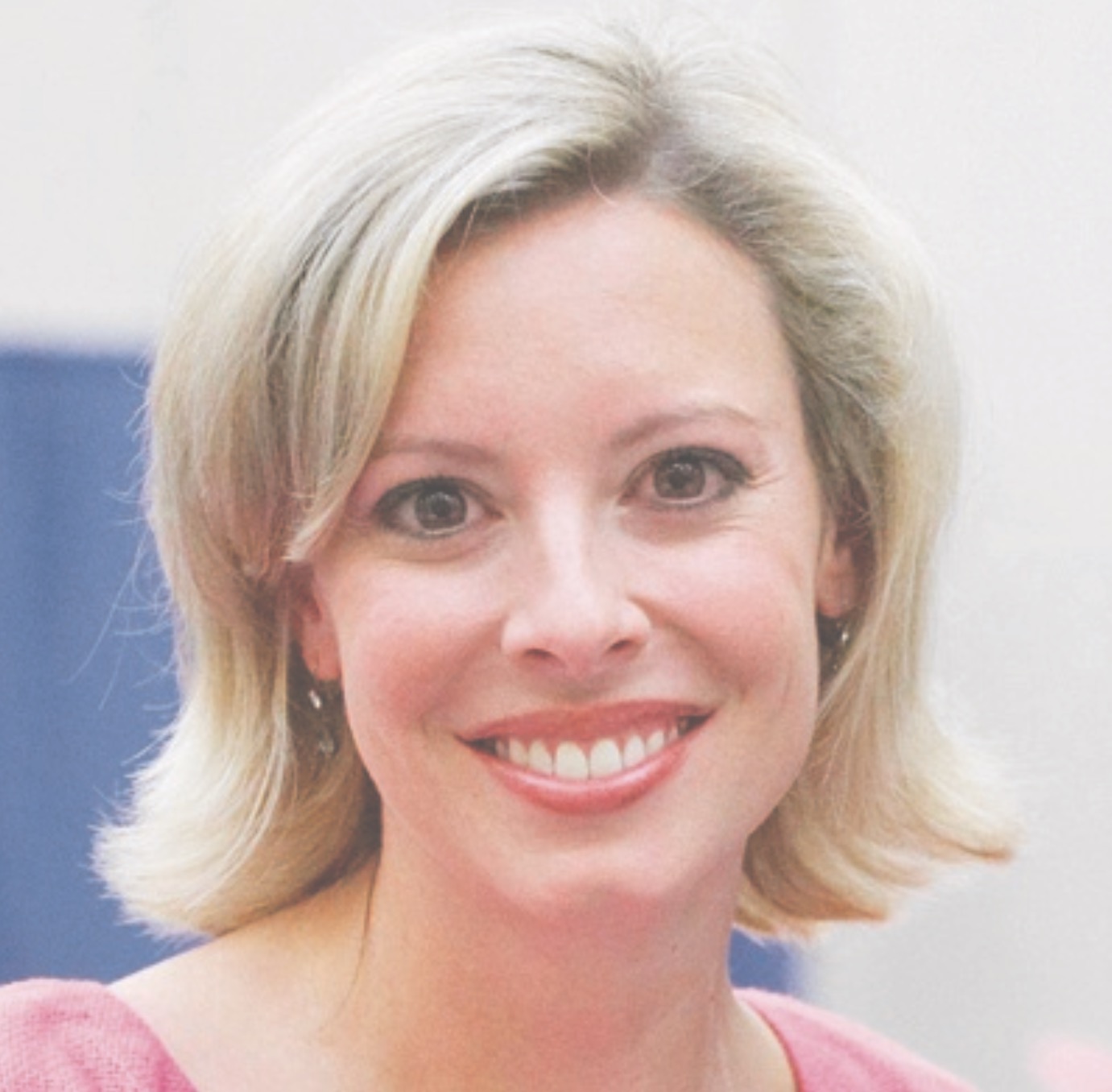Read more
Live United Day at the Chattanooga Market offers an interactive, fun way to involve the whole family in supporting the local nonprofit. Sunday, Aug. 16, from 11 a.m. to 4 p.m., you can stop by for face painting, bookmark making and other arts and crafts, air darts and other games; donate school supplies for the Stuff the Bus annual campaign or buy a T-shirt to support United Way; or just check out the market's variety of vendors. Visit uwchatt.org/www/docs/1393 to learn more.
For the longest time, it was just a date circled on a calendar: Aug. 14, 2015.
Eva Dillard, the 66-year-old president and CEO of United Way of Greater Chattanooga, has had the day underlined for months: Retirement Day. Always a meticulous planner, Dillard wanted the date set in advance so her successor could be in place well before her exit. That's what baby boomers do, they plan their work and work their plans.
For many months the date seemed inert - a simple placeholder, not a cause for internal drama. But now, as the days dwindle and the exit sign illuminates, Dillard is in a more reflective mood. "I realized in about March, as it became more of a reality, that it is an emotional time," says Dillard, a native of Mississippi and graduate of Ole Miss, whose sweetly Southern accent still occasionally sprouts a Magnolia State inflection.
Dillard is a gentle spirit, a naturally shy person who disdains self-aggrandizement to the point that she doesn't even like looking in a mirror. Retrospection is not her favorite pastime. But you don't work at a place for 28 years, forging friendships and alliances along the way, and approach the end without a note of melancholy.
In Dillard's case, the end of her United Way career is also rippled with pride. After 12 years in the corner office at the agency's headquarters at 630 Market St., she has set the local United Way operation on a sustainable course for the 21st century. Observers say her low-key, earnest personality combined with an enthusiasm for data-driven results, made her perhaps the perfect person to lead the local United Way through a change in business models and the Great Recession.
"No one ever questioned her motives," says Paul Neely, a former United Way board chairman. "She simply wanted the best for the Greater Chattanooga area and its citizens, especially those who through no fault of their own needed a little extra help."
Dillard says her retirement date is something she negotiated with her husband, Dick, a retired sporting goods retail entrepreneur. After all, they have children and grandchildren spread around the world. Travel, leisure and volunteerism beckon.
Meanwhile, her successor, Lesley Scearce (pronounced "scarce") comes to the local United Way from On Point, a local agency that promotes sexual abstinence and academic progress among the city's at-risk youth. People who know her say Scearce is a formidable fundraiser and visionary who is ready to graduate from an agency with 22 employees, to the vast United Way system with its mammoth 75-member board of directors.
Scearce, 36, says she has deep respect for the generations of leaders who have built the local United Way into an engine of change, and she enters the job with a mix of humility and confidence.
If your life flashes before your eyes when you die, a similar vision plays out when you retire.
Dillard can recall the day in 1987 when then-CEO Paul Ingham convinced her to leave her job in speech pathology to come aboard the nonprofit. Ingham made Dillard an offer she couldn't refuse: Join the United Way team and you can leverage your passions to help more kids.
Through the years, Dillard rose from director of outreach services at United Way to vice president and finally to president in 2003. With an appetite for data analysis and healthy respect for the power of anecdote, Dillard had the left-brain, right-brain skills that are the one-two punch of successful nonprofit management. And those skills would be put to the test as the local United Way changed its business model in the early years of the 21st century, shifting from simply being a funding source for a confederation of agencies to being an agenda-setting, goals-and-outcomes driven engine of modern philanthropy.
"United Way has changed, focusing significantly on investing in children and neighborhoods," says Mai Bell Hurley, a civic leader and member of the search committee that chose Dillard to head the local United Way. "There were clearly agency directors that wanted it to be a confederation. But even if someone disagreed with what was being done, they never questioned her [Dillard's] integrity."
More recently, the local United Way has had to navigate through the shifting winds of an uncertain national economy. For several years, beginning in the late 2000s, the United Way's annual fundraising was stuck in neutral at about $11 million to $12 million. It has since picked up pace and last year was comfortably above $12 million ($12.7 million to be exact), ranking the city second among mid-sized cities behind Winston-Salem, North Carolina.
Increasingly, the agency has adopted a strategy of stretching dollars. No longer just a fundraising agency existing to portion out money, the new United Way is a driver of change. Dollars are dispersed based on proven results and focus on core goals advanced by United Way: promoting early childhood health and education, building stable families through life coaching and helping the most vulnerable populations.
"We realized we needed to become more valuable to the community, and that our results should be measured and we should be held accountable," Dillard says.
The local United Way still contributes funds to 39 local agencies, but increasingly the money comes with strings attached.
Under Dillard's leadership the local United Way has become deeply involved in efforts to help underprivileged children thrive by distributing books to families with young kids, providing tutors, sponsoring anti-hunger programs, and providing state-of-the-art training for early-childhood educators.
One of Dillard's favorite memories is of a cadre of mothers in a local public housing project who banded together to help spread the word about United Way's child-centered programs.
"They were so excited. They said, 'We want to help get the word out, to help sign up kids. We want to be your foot soldiers,'" Dillard remembers.
One of the great successes of the United Way's "stable families" push is its success in weaning some people from chronic dependence on public assistance. Life coaches were put in place to help needy folks improve their education, increase their income and find affordable housing. As a result, about half the people receiving assistance through the United Way push have eventually been able to live independently, without the need for social services.
All this change was accomplished in the years surrounding the Great Recession when giving was more difficult for many corporate and individual donors. Dillard says the agency had to adjust its expectations.
"There was a feeling that, 'We are in this [hard] time, and everybody is in the same boat.' The board set conservative goals in those years," she says.
Leaders were encouraged this year that the annual fund grew to $12.7 million, a sign that giving might be on the verge of an upward trend in Dillard's last year at the helm.
"What we're talking about here is sharing the blessings this community has," says Dillard, who says she saw encouraging signs in the last campaign but is reluctant to take credit. "This has never been about me," she cautions. "This is the work of a large staff trying to make people's lives better."
And improving lives has always been Eva Dillard's guiding light.
 Outgoing United Way president Eva Dillard, right, has staffers stand and come forward as she speaks at the United Way of Greater Chattanooga's annual meeting and campaign celebration Friday, Feb. 27, 2015, at the Read House Hotel in Chattanooga, Tenn. United Way present its annual impact report and awarded its volunteers and donors.
Outgoing United Way president Eva Dillard, right, has staffers stand and come forward as she speaks at the United Way of Greater Chattanooga's annual meeting and campaign celebration Friday, Feb. 27, 2015, at the Read House Hotel in Chattanooga, Tenn. United Way present its annual impact report and awarded its volunteers and donors.*****
Pointed in a New Direction
Q&A with Lesley Scearce
Name: Lesley Stiles Scearce
Occupation: New president/CEO of United Way of Greater Chattanooga
Previous Job: President/CEO of On Point a Direction for Life
Age: 36
Education: Girls Preparatory School; University of Richmond, bachelor's degree; University of Tennessee at Chattanooga, master's degree
Lesley Scearce, 36, the new president and CEO of United Way of Chattanooga, takes the reins of the nonprofit later this month. Scearce, a Chattanooga native, says she is assuming the position feeling a mix of "humility and confidence" - a delicate balance that she believes is the key to effective executive leadership. While at On Point, a local nonprofit focused on helping at-risk youth, Scearce saw fundraising increase 700 percent and the average donor age virtually cut in half.
The On Point curriculum, which grew from the Chattanooga model, has been expanded to 40 states and 13 countries. Here, 14,000 local students a year are receiving leadership, life skills and mentoring.
Below is a condensed and edited version of a recent interview with Chatter writer Mark Kennedy.
How does your experience with On Point, helping Chattanooga's at-risk youth, prepare you for your new position at United Way?
I became the CEO [of Why Know, the predecessor of On Point] at 23. I look back now and think the board must have been crazy. (Laughs.) But, as I shared with the United Way board, they must have believed in me before I believed in me. They saw, I guess, some kind of talent, and really took a risk with me.
I was at On Point for 15 years. There are many things that are gratifying about my time there, but I guess the one thing that's the most gratifying was doing a 180-degree shift in vision. When I came on board, it was totally focused on promoting abstinence in sexual activity.
It soon became clear to me that risky behaviors occur in clusters. When I was out in the schools, I'd see, for example, a 15-year-girl who was not sexually active, but she might be cutting [herself]. There's obviously a problem there. Or a 16-year-old boy might not be sexually active yet, but he is in a gang. This is not a path to thriving.
Instead of just trying to fix the consequences [of teen pregnancy], we started thinking about how to get to the root of the problem. We changed the name to On Point, and it was an eight-year process to develop new strategies and to live the name change.
In short, this particular experience with On Point taught me that the lives and problems facing youth are complex and require addressing the whole person with collaborative solutions. The United Way of Greater Chattanooga is a change agent, also addressing our city's complex needs through root driven, collaborative solutions.
How did you meet funding challenges at On Point?
Actually we had a crisis time that was my favorite season at On Point. Every bit of our government funding was cut. We lost $1.6 million overnight.
In a crisis, especially a financial crisis, you learn to work harder and to be more collaborative and efficient. It was scary, terrifying, but I loved it. We came out the other end of that crisis raising significantly more money, and more importantly, without cutting any service to students or schools. Since I came onboard at On Point we increased our fundraising 700 percent. People could see that we were critical to the community.
Our story became the community's story in this season. We also learned how to get smarter with our model, how to do more with less.
How can you use some of those strategies at United Way?
The United Way has the ability to use data so that we can come up with strategies to use resources more effectively. Just funneling more money into something isn't going to be the answer. But, how we [use the money] will be.
Part of my plan is to help increase funding for United Way. I do believe we are a city of great resources. Sometimes in the nonprofit world there is feeling of, 'There's only a limited pie. If one group's pie piece gets bigger, somebody else's gets smaller.'
That's not how I view our city. I see, again and again, there is abundantly more. People's capacity and ability to give of their resources and time is remarkable. I don't look at it finitely, I guess.
When people see results and understand how they fit into the bigger picture of the future of a child, family or community, they become part of the story. I want to see our entire community understand and embrace the impact of the United Way story.
Does being a native Chattanoogan raise your energy for your new job?
I love the city, and I know the city. In the last 15 years, I've seen the incredible work that is being championed across our city. But we have real dichotomy that keeps me up at night. When I think that 42 percent of our children live in poverty, that keeps me up.
We've solved huge problems in the city. I think education and poverty are the next problems we are going to tackle collectively. If we don't, we'll never realize our other dreams for our economy. I think we rise and fall together.
What's your strategy for increasing United Way giving here?
We have to find ways to communicate relevance to new audiences. I feel pretty strongly that we can increase leadership giving through adding new companies and individuals, especially of a younger demographic. The [new] givers in our city, once they understand the results of United Way, will get excited and engaged.
At age 36, do you see yourself as a bridge between generations?
Humbly, I would say yes. I've watched On Point's support base go from mostly people who are age 65-plus, to an average donor age of 32. That's significant. I think it's the world we live in. At 36, my peers and friends are getting involved [in nonprofit work]. I also have a lot of respect for the generations that have come before. We're standing on the shoulders of their values and sacrifice.
This is a big career move for you. How does it feel?
I have lot of humility walking into this, understanding that I don't know what I don't know. Even with this humility, though, I really feel like I was made for this. It has come after a year and a half of prayer, and a year and a half of self-examination. I've become self-aware of what drives me.
In the interview [with the United Way search committee], I was candid about who I am. The size of this job is not lost on me. Something I excel at is being a big-picture, vision person, and aligning people in a common direction.
I'll have to learn new competencies, of course. I told the search committee: 'If you are looking for someone focused on operations, a good maintainer, I'm not a good fit. But if you are looking for a builder, I love building bridges in communities and connecting and communicating a common vision. If that's what you're looking for, I'm your person.'
Do you have any mentors who have helped you grow as a leader?
Starting out in this [leadership] world at 23, the way I know everything I've learned is sitting down with people and saying: 'Tell me what I need to know. I know nothing.' Bob Bosworth, retired COO at Chattem, is one of my mentors. David Denmark, who runs the Maclellan Foundation, has been an incredible mentor for me. Susan Harris, the president of Rock City, has been mentoring me for the past year. Finally, my dad, Bill Stiles, director of strategy and research at Johnson Group, is just so wise and helpful.
I've learned from all these people to lead with humility, really being cognizant of my strengths and vulnerabilities as a leader.

